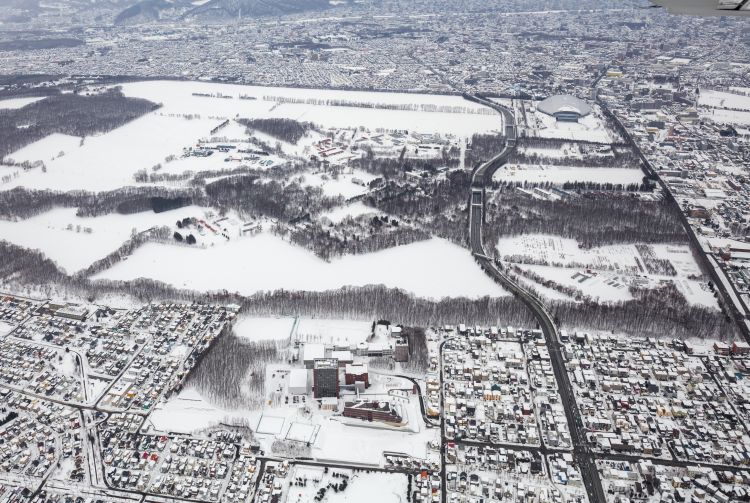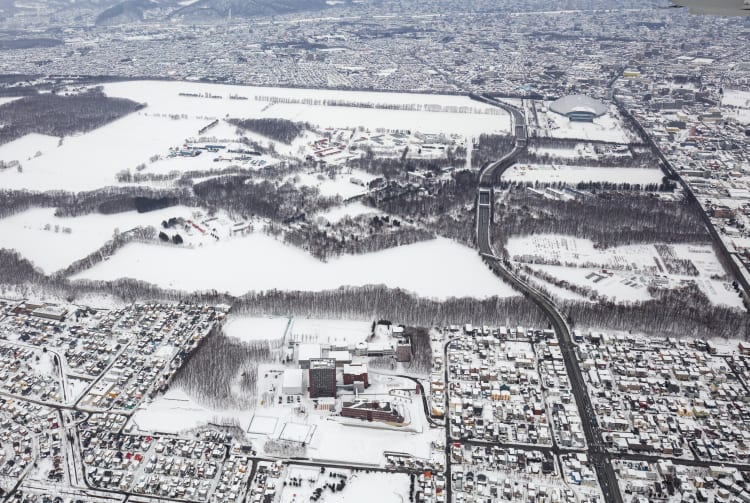Ishikari plains and flocks of sheep
Hitsujigaoka Observation Hill, on the southeastern side of Sapporo , showcases the Ishikari plains beautifully, juxtaposed with the modern Sapporo Dome. Originally used to raise sheep for the Hokkaido National Agriculture Research facility, visitors now flock to Hitsujigaoka Observation Hill to snap photos.
Don't Miss
- Taking a picture with the statue of Dr. Clark
- Sampling a variety of lamb- and mutton-based treats at the Hitsujigaoka Rest House
- Seasonal highlights, such as lavender in July, and a Snow Park from January to March
Quick Facts
The name in Japanese-Hitsujigaoka-translates to "hill of sheep"
The area was once so popular, visitors had to be regulated until the smaller Observation Hill was opened
The original bust of Dr. Clark at the Hokkaido University was similarly popular, resulting in the now-iconic statue at Hitsujigaoka Observation Hill
How to Get There
Hitsujigaoka Observation Hill is accessible by car, bus, and subway.
Transit by subway is available year-round. From Sapporo Station , take the Toho line to Fukuzumi Station (15 minutes), then transfer to the number 84 bus (10 minutes) and alight at the Hitsujigaoka bus stop.
A note: between April and November, bus offers the most direct access. From Sapporo Station , simply take the number 89 bus (40 minutes).
For those arriving by car, free parking is available.
Boys, be ambitious!
Dr. William S. Clark, an American professor, was invited by the Japanese government in 1876 to help establish the Sapporo Agricultural College (now the Hokkaido University). His knowledge and teaching had a lasting impact on Hokkaido's colonization and he remains an important figure for the prefecture today. Snapping a photo while replicating his statue's famous pose is a must for visitors to Hitsujigaoka.


The latest information may differ, so please check the official website

























































